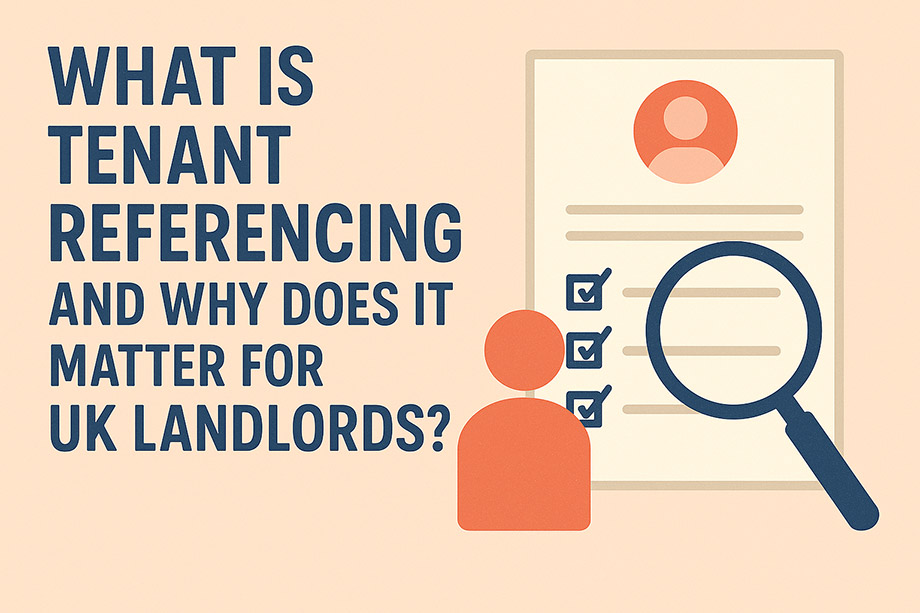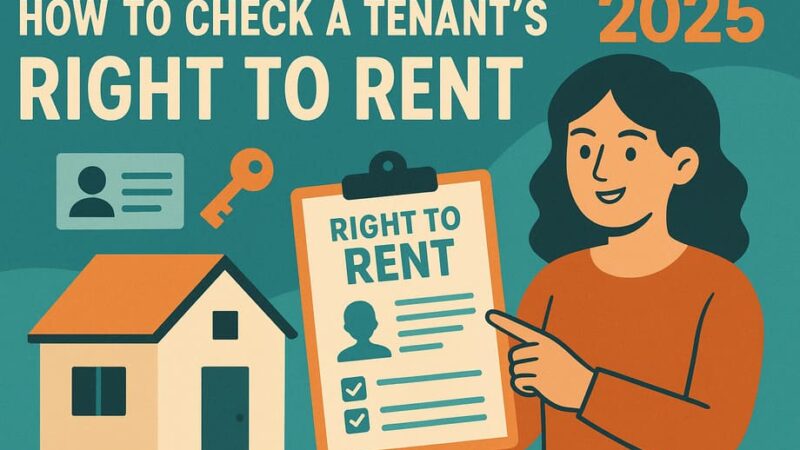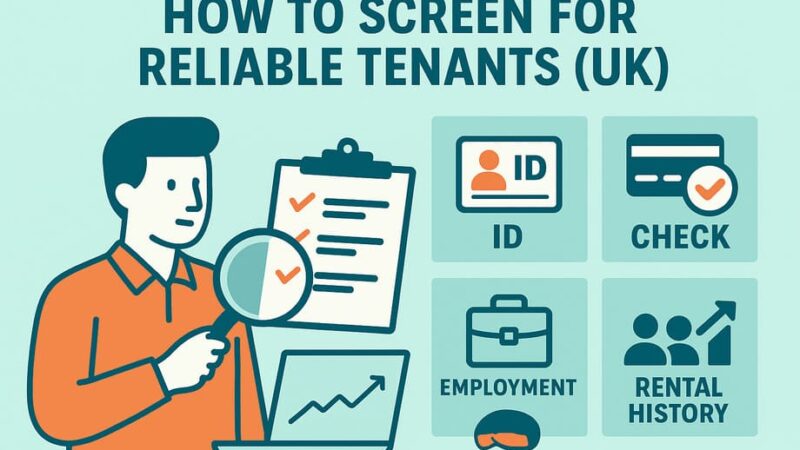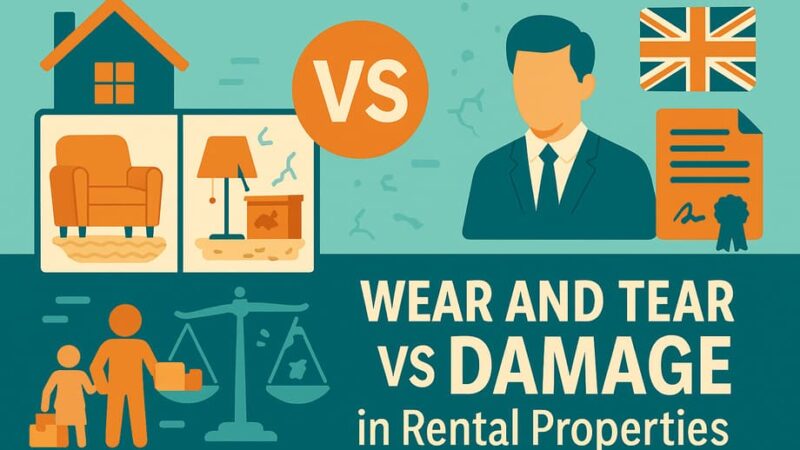What Is Tenant Referencing and Why Does It Matter for UK Landlords?

Renting out property in the UK can be a profitable and rewarding business, but it also comes with risk. One of the most effective ways landlords can protect themselves is by thoroughly vetting prospective tenants before handing over the keys. This is where tenant referencing plays a crucial role.
In this post, we’ll explore what tenant referencing really is, why it matters, and how UK landlords can use it to make better, safer letting decisions.
Table of Contents
What Is Tenant Referencing?
Tenant referencing is the process of evaluating a prospective tenant’s suitability to rent a property. It involves a series of background checks designed to assess the tenant’s financial stability, rental history, employment status, and overall reliability. The goal is to identify any red flags before entering into a legally binding tenancy agreement.
Typically, referencing checks are conducted through professional services, but landlords can also choose to carry out some elements themselves.
Why Is Tenant Referencing Important for UK Landlords?
Landlords in the UK face growing regulatory pressure and financial risk if a tenancy goes wrong. A problematic tenant can lead to missed rent payments, legal disputes, property damage, and expensive eviction processes.
Tenant referencing helps landlords:
- Reduce the risk of rent arrears
- Avoid tenants with a history of eviction or poor behaviour
- Ensure legal compliance (such as Right to Rent checks)
- Increase the chances of a successful, long-term tenancy
By gathering essential background information, landlords can make informed decisions with confidence.
What’s Included in a Typical Tenant Reference Check?
Tenant referencing usually covers the following elements:
- Credit check: Highlights any County Court Judgments (CCJs), insolvencies or significant debt.
- Employment verification: Confirms the tenant is employed and earns enough to cover rent.
- Previous landlord references: Provides insights into the tenant’s behaviour and rent payment history.
- Affordability assessment: Compares income against rent to ensure the tenant can afford the property.
- Identity and address history verification: Confirms that the applicant is who they claim to be.
- Right to Rent checks: Required by law in England, confirming the tenant has legal status to rent in the UK.
7 Tips for Landlords Using Tenant Referencing Services
- Choose a Trusted Referencing Provider Use established platforms like OpenRent, Rentguard or Let Alliance for reliable checks.
- Always Check Affordability Ensure your prospective tenant’s income is at least 2.5x the monthly rent as a basic rule of thumb.
- Verify Documents Independently Ask to see original documents (e.g. payslips, bank statements) in addition to reference reports.
- Ask for a Guarantor if Needed If a tenant just misses affordability or is a student, request a guarantor for extra security.
- Trust But Verify Landlord References Always follow up with previous landlords via phone and confirm the reference is genuine.
- Conduct Right to Rent Checks Properly It’s a legal requirement in England. Keep records and avoid discrimination.
- Don’t Skip Referencing for Short-Term Lets Even short-term or corporate tenants should undergo basic screening.
Pros and Cons of Tenant Referencing
Pros:
- Reduces risk of rent arrears
- Helps ensure legal compliance
- Supports landlord insurance claims
- Encourages longer tenancies
- Can improve landlord-tenant communication
Cons:
- Can delay move-in if not handled promptly
- Costs may apply (though many services are affordable or free)
- Not foolproof – some issues may still be missed
For letting agents looking to simplify tenant referencing and other crucial tasks, check out the Best Tools for Letting Agents in the UK – 2025 Guide that covers the top software solutions that can help improve efficiency and compliance.
Common Questions About Tenant Referencing
What if a tenant fails referencing?
Failing referencing doesn’t automatically mean rejection. Landlords can request a guarantor, higher deposit, or co-signer depending on the situation.
Who pays for tenant referencing in the UK?
Since the Tenant Fees Act 2019, landlords must cover the cost of referencing, not tenants.
How long does tenant referencing take?
Most referencing checks are completed within 1 to 3 working days.
Can I do referencing myself as a landlord?
Yes, but using a professional service ensures legal compliance and often includes insurance-backed guarantees.
Do I have to reference every tenant?
Yes, every adult tenant should be referenced to protect yourself legally and financially.
Final Thoughts
Tenant referencing isn’t just a box-ticking exercise – it’s one of the most important parts of the lettings process. Whether you’re managing a single flat or a portfolio of properties, properly screening your tenants can save you time, money, and stress.
Services like OpenRent make the process straightforward, offering built-in referencing tools as part of their listing packages. While no system is perfect, tenant referencing remains the most reliable way for UK landlords to safeguard their investment and find trustworthy, long-term tenants.
If you’re not already running checks on every tenant, now is the time to start.
Last Updated on July 29, 2025 by James Cartwright







